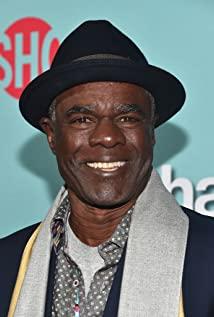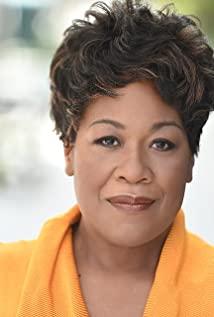[Introduction]
This is a case of empathy, and the reversal of Laura's confession to counselor Paul is the main thread of this episode. Paul's handling has both master-level responses and Zhang Huang's confusion. Follow us to see below.
[Laura goes around in circles, testing Paul]
Shen: The performance of the consultants here is relatively neutral, as everyone can see. You can imagine, if in the consultation room, a visitor asks you, "Do I look good when I'm sad?" What would the counselor say would be better?
Zheng: This question is flirting, right? Like asking a sweetheart no response.
Shen: Her expected reaction was that the counselor would say, like the man, that I'm fine when I'm sad, or at least pretty.
Zheng: No matter how bad it is, the problem is still focused on her, and now she has disappeared in an instant.
Shen: Yes. Therefore, consultants should also pay attention that if we encounter a visitor asking this kind of question in the consultation room, we must not simply answer it. Because of this she actually has a problem.
Zheng: As a male counselor, Mr. Shen, how would you answer?
Shen: Oh, I'll probably be the same as Paul, I'll be in a neutral position. You can't deliberately try to please the visitor, but you can't reject her, or accuse her.
Lee: I think my response would give an ambiguous answer. In normal social situations, people asking this way will work. Even if it doesn't look good, I won't be so direct. I may say "Actually, I don't know if it looks good or bad." I feel like my natural reaction between conversations will come out at the moment. I think he's quite a consultant's answer here. If I communicate with her in this state, I may be ambiguous, neither saying good nor bad, just saying "um", nodding like this, it is actually very ambiguous, let her understand whether it is good or not Okay.
Zheng: I always feel what Paul felt at that time, those actions.
Shen: Actually, there is a foreshadowing here. The client cares about what the consultant thinks of himself.
[Paul points out the timing issue]
Shen: The consultant here asked a very critical question of timing. Why now? I think this is one of the most effective points that the consultant has done, that is, to point out this point, why is it now? This point is very crucial. Why not half a year ago, a month ago, a month later, but now? This point is a good question.
Zheng: How did the consultant think of asking this point? We now know that he asked this question in hindsight. If you, as consultants, would choose to ask this question in this scenario? Do you also pay attention to timing? when she came back from the bathroom.
Shen: I don't know what I might ask at that time, but I think the consultant's question is very good. If I could ask him this question, I would think his consultation got the point. Because sometimes the client says a lot of things, the counselor is like a role to capture the key points, but you don't necessarily capture a point that is very related to her situation and problems. But the counselor's question now brings up an important point.
Li: I remember asking about the time of the incident and it was also provided to us as a model in the interview training. Because you just started consulting and don't know how to ask, but teachers will tell you to seize this point and ask. After the problem is presented, ask the time point why you came to consult at this time, which is a more convenient way to clarify your thinking. Didn't she say a lot before, if you follow her questions above your boyfriend, you will be biased if you follow this. Sometimes when there are a lot of problems, I can't figure it out. If I can't figure it out, I go back to the point in time when the problem occurred to help myself pull this thing back. Especially since a lot has been described, everyone is in a big circle and needs to go back to the point in time and pull back the main line. This is the feeling.
Shen: Yes, you will often find that the visitor does not feel this way, and she will say whatever comes to her mind, but she will actually go around in circles and will deviate from the core. At this time, the consultant needs to pull her back to a topic to discuss.
Li: Many times, after we chatted so much with the visitor, you also went with her. If you break off like her and come back, you may go back and emphasize the points you have dug up, and dig down the trend. He didn't, he went back to the time of the incident and pulled a new theme out.
Zheng: You won't worry that her facts haven't been fully told, and haven't diverged enough?
Li: You see from its scenario design, it feels like a disconnection and a restart. Just before she left.
Shen: The next thing is the quarrel between her and Andrew. The counselor pointed out that you started the matter in the first place. She was still used to letting others take the blame at first.
Li: I think his later dialogue is very powerful, because if I did it, I would not be so bold. He has already attributed all the active voice to her.
Shen: Yes, there are preconditions. This is because they have been consulting for a year, and their relationship has become stronger. The counselor doesn't have to worry that my slight offense will affect our counseling relationship, it has been established. It has been a year, and we have already trusted each other. If you don't question me, I feel that I have no sense of trust.
Zheng: I'm surprised that Laura really thinks she didn't initiate it.
Li: The defense mechanism is there, and I have fooled myself.
Shen: Because she has always tended to assign responsibility to others, you can see from her many previous statements that this is a habit of hers.
Zheng: Doesn't it mean that she is lagging in some places and normal in others?
Shen: She is more like a child when it comes to establishing an intimate relationship. It seems that I can't do anything about it. You are responsible, you are responsible, you deduce and guide, and you are in charge. This is all provoked by you. She should take responsibility, but she didn't think about the responsibility she should take on herself.
[Laura confesses, Paul responds]
Shen: Do you think Paul really didn't notice it here?
Li: Yes, what would you say?
Shen: I will definitely notice it. If the client says this, I will definitely notice it. I will definitely notice that she has a different feeling for me, or has other meanings. But here do you think Paul pretended not to notice or really didn't notice? Personally I tend to pretend.
Zheng: I think it's true. He looked really bewildered.
Shen: I don't think so. I think Paul felt it, but he didn't know how to react so he could only pretend he didn't feel it. That's how I understand it.
Xu: I feel the same way.
Li: If you encounter this kind of client, and you turn over a question you don't want to ask, and make it clear, how would you deal with it?
Shen: I will face it directly, I will not use his method.
Li: He means that I know that I'm acting stupid.
Shen: That's right, pretending to be stupid, I wouldn't use this method. At least his first reaction was to play stupid, maybe he would adjust later, but he chose to play stupid for the 0.1 second he heard. But I'm not escaping the question at 0.1 seconds, I'm going to talk to her about it. As a counselor, Paul has concerns, because the counselor cannot have a relationship other than the client, and he is considering whether to pick it up, so I think Paul must be unprepared. Then the visitor must be very uncomfortable with Paul's reaction because she thinks Paul is pretending.
Shen: The consultant admitted it. The question of the consultant is to admit that I know what you want to express, so what kind of response do you expect?
Li: The female counselor turned things over, but Paul's first reaction was to block it and turn it over. But for the sake of consultation, he raised the issue again the second time.
Shen: Yes, because he knows that the correct way for the consultant is to face the problem, not to avoid it.
Xu: I feel that this consultant seems to have this feeling, but I am not sure Laura is referring to her, but I feel that something is coming, and the storm is about to come.
Shen: At least this time the consultant knows, and he asked a good question. What response do you expect?
[Paul rejects Laura on the grounds of professional ethics]
Shen: He said there must be a reason for being so slow, struggling.
Li: Yes, when he said it so slowly, he felt that on the one hand, he was helping clients to clarify, and on the other hand, he was helping himself to clarify. If you can't think of a way, this method is safer. The consultation has ended here, and he will no longer help her with any therapeutic effect.
Shen: Yes, to clarify and draw a clear line. If I find out about this situation during the consultation, I have to make a clarification first, and then discuss the problem with her. If I can't discuss this topic first, it will cause misunderstandings, and I feel that she has hope. He didn't discuss it further because the time was up, but he did. This is the case in the United States, psychological counseling ends when the time comes. It's not like we're just talking about a problem and it's over.
View more about In Treatment reviews











